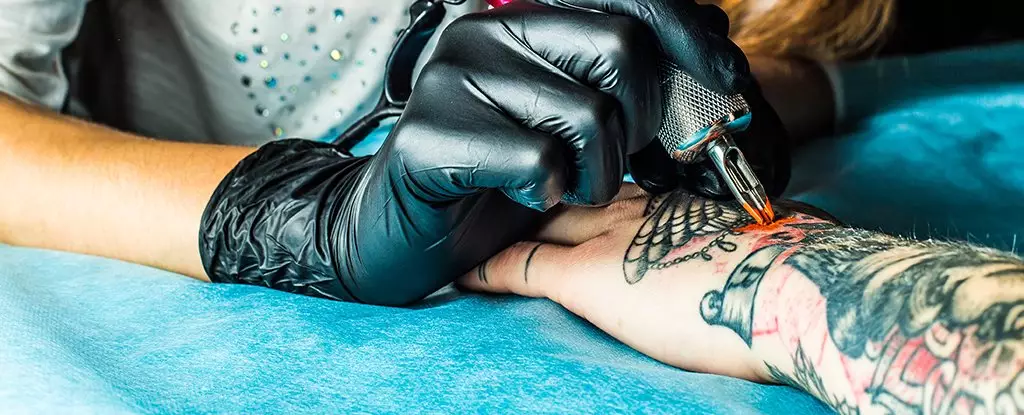The growing popularity of tattoos and permanent makeup has raised concerns about the safety of the products used in these procedures. A recent study conducted by the National Center for Toxicological Research (NCTR) and the Center for Food Safety and Applied Nutrition (CFSAN) revealed alarming levels of bacteria present in commercial tattoo inks and permanent makeup. The research found that approximately 35 percent of the samples tested were contaminated with both aerobic and anaerobic bacteria.
The researchers examined 75 tattoo inks from 14 different manufacturers, all of which were sealed and unopened prior to testing. Surprisingly, 26 of the samples were found to contain microorganisms, with 8 of them being potentially pathogenic species. The most common bacteria identified were from the Staphylococcus genus, known for causing various infections.
Despite 49 of the tattoo inks being labeled as sterile and free from bacteria by the manufacturers, the study revealed a stark contrast. The researchers discovered that there was no correlation between the product labels and the actual presence of bacterial contamination. This calls into question the effectiveness of current sterilization methods used in the production of tattoo inks.
The Implications for Consumer Health
With approximately one in three adults in the US having at least one tattoo, the implications of bacterial contamination in tattoo inks cannot be ignored. While previous health concerns related to tattoos have been attributed to immune system reactions, microbial infections are now being linked to the inks themselves. The study emphasizes the importance of monitoring tattoo inks for microbial safety to protect consumers from potential infections.
The findings of this study shed light on the need for stricter regulations and quality control in the tattoo industry. Consumers should be made aware of the risks associated with bacterial contamination in tattoo inks and the importance of choosing reputable tattoo artists who prioritize hygiene and safety. Additionally, continuous monitoring and evaluation of sterilization procedures for tattoo inks are essential to ensure the microbial safety of these products.
The presence of bacteria in tattoo inks poses a significant health risk to individuals seeking tattoos and permanent makeup. The study serves as a wake-up call for the industry to prioritize consumer safety by implementing stricter quality control measures and transparency regarding the contents of tattoo inks. By raising awareness about the dangers of bacterial contamination in tattoo products, steps can be taken to prevent infections and promote safer tattoo practices.



Leave a Reply